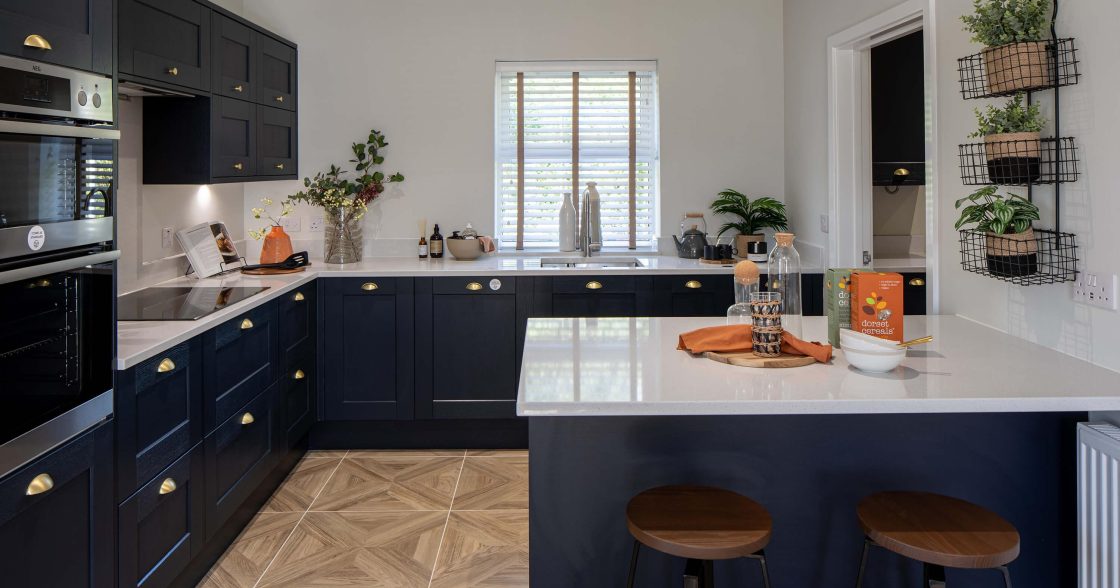How energy efficient are new build homes?
8 December 2021With climate change a hot topic in the wake of COP26, it’s likely that many homeowners are more mindful about how they can live a more sustainable life. We’re sure you will have reached for that thermostat in the last couple of weeks with the arrival of winter, to heat up your home to ensure that you stay warm and cosy.
Whilst it is a necessity in this cold weather, globally, heating accounts for nearly half of all energy consumption and 40% of energy-related carbon dioxide emissions. In the UK alone, it has been estimated that 19% of greenhouse gas emissions come from warming up the places we live and work in, with more than three-quarters of this coming from domestic buildings (source: BBC).
What can we do to help reduce this figure? It’s easy to switch off the heating and put on a jumper but let’s be realistic. That’s not always practical. Homes need to be more energy efficient, retaining heat so that we don’t have to put the central heating on for long periods of time. If you’re currently house hunting, energy efficient homes may be at the top of your agenda and you’re probably asking yourself ‘are new build houses more energy efficient than older properties?’ You’re not alone as a recent survey has revealed that 61% of UK house buyers prioritise energy efficiency for heating and fixtures when looking for a new home (source: Property Reporter).
At Devonshire Homes, we mainly use traditional building techniques and are continually looking for new methods that fit with our traditional build ethos, providing high-performing materials to create a home that is sustainably made and energy efficient by utilising the fabric first approach rather than bolting on renewable technologies to bridge the gaps. We balance this approach with a desire to create homes that are affordable both to buy and run. So, how do we create new build energy efficient houses?
1. Insulation
All of our new build homes benefit from good quality performing insulation tied into cavity wall constructions to maintain temperatures to the external walls of the house, meaning that you won’t need to keep turning up the thermostat in the winter, avoiding sky-high energy bills. Together with good quality performing insulation in the floors and roof of a Devonshire home, and with the careful consideration of reduced air leakage to the perimeter of the building heat flow from the house to the outside is reduced. Insulation typically helps towards ensuring that warm air flows throughout your home in the winter. In the summer, it helps prevent hot air from outside entering your home, helping to keep pleasant temperatures all year round.
2. Windows and Ventilation
Windows play an important role when it comes to keeping your home warm in the winter and cool in the summer. Older properties may have single glazed windows with wooden, poorly maintained frames, causing a frosty draft in winter, requiring the heating to be turned on. You won’t find this in a Devonshire home. Our properties are built with double-glazed windows as a minimum, within UPVC frames which provide a very good thermal performance and prevents warm air escaping through the glass and frame. It’s been estimated that double glazing is four times more effective than single glazing and that it can decrease your energy bill by more than 20% (source: Bradnam’s).
Ventilating the home is another important factor for the energy efficiency of a home. Keeping windows shut in winter severely restricts natural ventilation and can cause stale air and moisture to be trapped in the home. Therefore, it requires careful consideration of how the building will breathe. A Devonshire Home considers this, and now mainly utilise an energy efficient Positive Input Ventilation (PIV) system within the home. This brings fresh filtered air from the roof space into the home at a continuous low rate, providing gentle ventilation. Humidity is diluted and replaced to leave a healthy, fresh and clean environment to live in.
3. “SMART” heating controls
Some of our new homes come with a smart “HIVE” or “Honeywell” system, giving you complete control over your energy consumption. The thermostats are very user-friendly, and the interface is so simple and easy to use. You can set up a schedule for your heating so that it comes on automatically when you are at home and switches off when you are out of the house (using the geo-fencing feature), ensuring that you don’t waste money heating your home when you’re not there. You can also monitor your energy consumption through the system app, giving you complete control, even when you’re out and about.
4. Energy efficient appliances
All of our properties come with high-specification integrated kitchen appliances which all have an excellent energy efficient A rating. This tells you that the appliances we provide are the most efficient product of its class, using less energy than some competitor appliances, and helping you keep your home as energy efficient as possible.
The future
You may be aware that a new suite of energy efficiency standards for new build homes has been announced by the Housing Secretary which are expected to be met in full by 2025 (source: NaCSBA). With this in mind, Devonshire Homes is committed to looking at new ways in which to enhance the energy efficiency of its new build homes, exploring different avenues which will ensure we meet these new standards in the future.
We hope this blog has enlightened you into how energy efficient our new build homes are. If you have any questions or are interested in finding out more about the new build homes we currently have available, do contact our Sales Executives at any of our sites.
Click here to view our latest developments.
